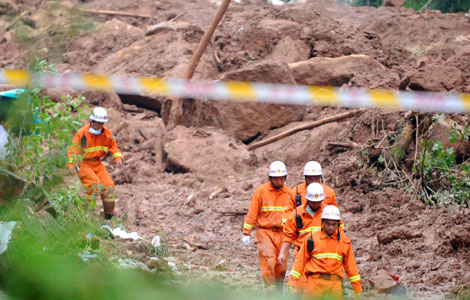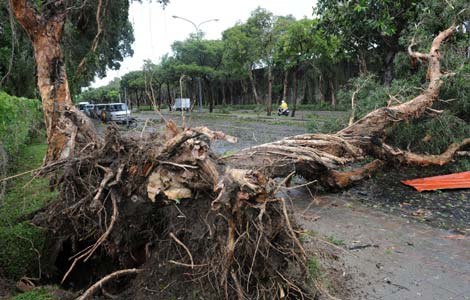

Overcapacity, sluggish demand highlighted as major difficulties
Burdened by overcapacity in manufacturing, local governments are finding the current downturn more difficult to cope with than the 2008-09 crisis.
Many of their investment projects are hard to sustain as economists are urging the central government to refrain from bailing them out with easy credit.
Central government officials have also expressed their commitment to leading the economy away from its investment-reliant, credit-driven growth model.
"If local governments succeed in persuading the central government to bail them out, the task of cutting overcapacity can never be accomplished," said Guan Qingyou, assistant dean of the Minsheng Securities Research Institute.
"We experienced the same situation in 2008-09. We cannot afford to make the same mistake again."
Experts said the challenge for the central government is to resist the intense lobbying from local governments, while pressing on with reforms that would gradually generate sustainable demand.
On Wednesday, Finance Minister Lou Jiwei signaled Beijing's greater tolerance of an economic slowdown, saying the GDP growth rate this year is expected to be 7 percent.
The economy expanded by 7.8 percent in 2012, and the government set a target of 7.5 percent for this year.
On July 5, the State Council said it would cut off credit to industries plagued by overcapacity to force their consolidation, while ensuring bank support for high-end manufacturing and modern agriculture.
Despite a sharper-than-expected slowdown, Beijing has stuck to its "prudent" monetary policy, insisting there is sufficient liquidity in the financial system, while warning that there are "prominent risks" not only in the shadow banking sector but also in local government financing vehicles.







